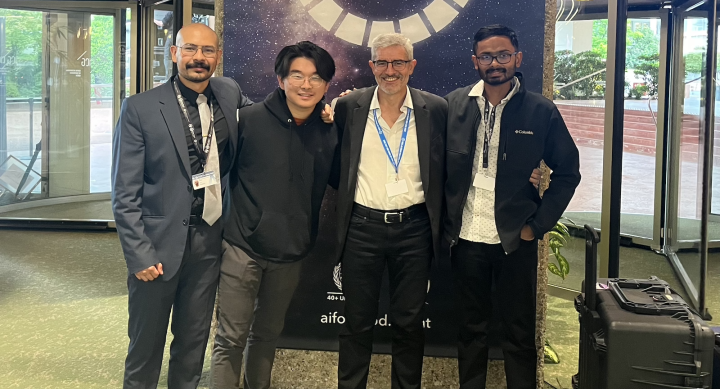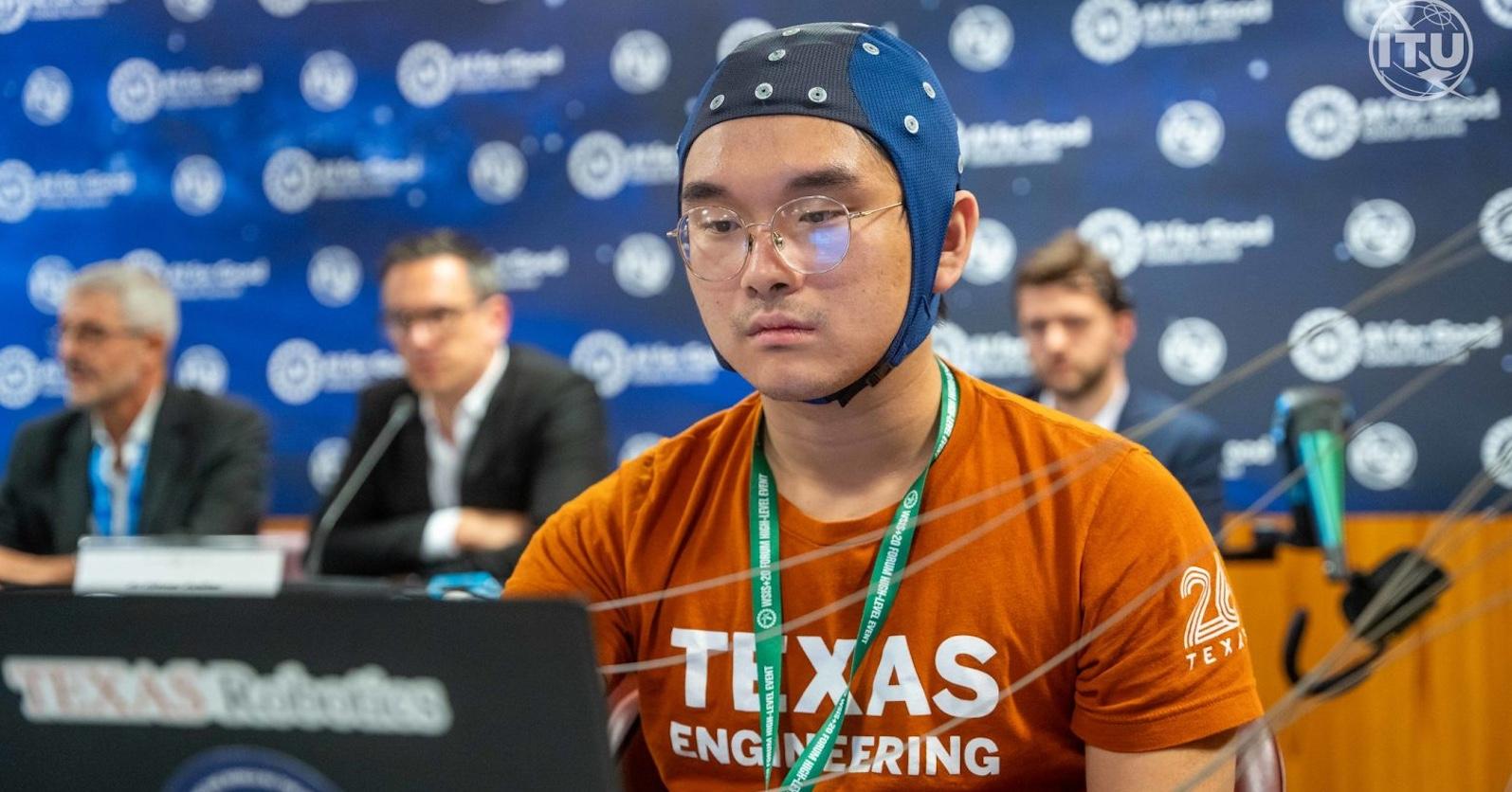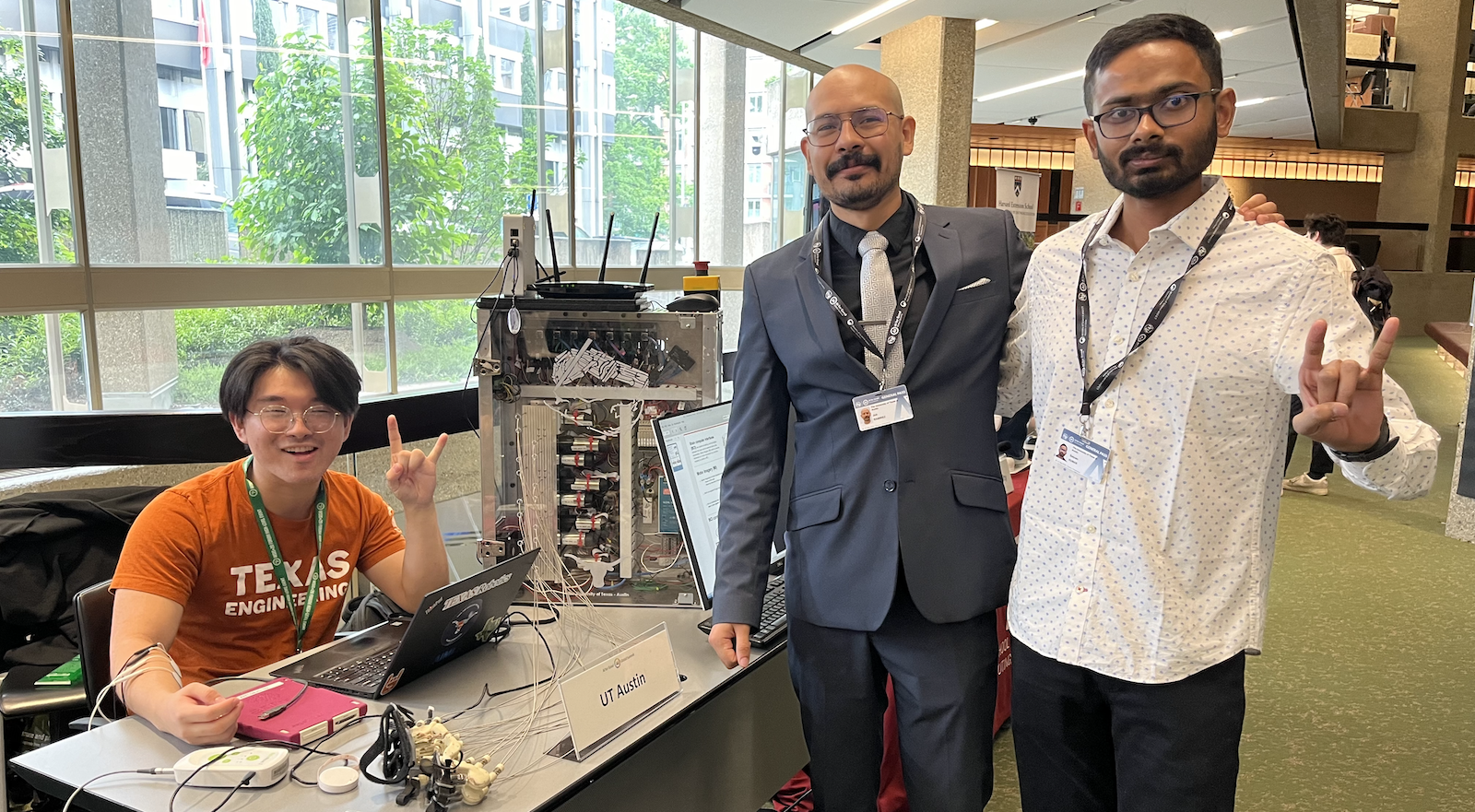
Dr. Jose del R. Millan and his students were invited to present their research at the 2024 AI for Good Global Summit in Geneva, Switzerland last month. This annual Summit, hosted by the International Telecommunication Union (ITU), is the world’s leading conference on the utilization of Artificial Intelligence (AI) in addressing the world’s most pressing challenges.
The summit’s expansive program explored they ways AI can advance health, climate, gender, inclusive prosperity, sustainable infrastructure, and other global development priorities. This year’s event hosted ninety demonstrations and exhibits, over three hundred guest speakers, and more than twenty workshops. Participants were invited to expert panels, technical workshops, and networking sessions.
Millan and his group provided a demonstration of a brain-controlled hand exoskeleton.
Millan expanded on the demonstration:
“A brain-machine interface (BMI) records brain signals and detects the subject’s intent to move their hand, then the exoskeleton executes the hand desired movement. This system is intended to amplify rehabilitation after brain damage by fostering brain plasticity and accelerating training time for subjects to learn to control their BMI. A major innovation is a novel ML approach that enables subjects without any previous experience to control the BMI using the decoder from a single expert. As shown during the exhibition, novel subjects have control of the hand exoskeleton within minutes.”

Satyam Kumar, WNCG graduate student and member of Millan’s Clinical Neuroprosthetics and Brain Interaction Lab (CNBI) at The University of Texas at Austin, attended the conference along with Millan.
I spoke with Kumar about his impressions of the conference:
Q: What are the implications of your research for the wider public?
KUMAR: Although Brain-Computer Interfaces (BCIs) have a wide range of applications, the most outstanding use lies in rehabilitation and controlling assistive devices. Our work has the potential to make a significant long-term impact on patients with disabilities, aiding in their rehabilitation and enabling them to control assistive devices more effectively.
Q: What insights did you gain from the AI for Good conference and how might these affect your research?
KUMAR: The conference provided us with invaluable perspectives due to its diverse attendees, including professors, high school students, media personnel, entrepreneurs, and the public. We received feedback on our demo from guests of various backgrounds, ranging from precise technical suggestions on algorithms and implementations to recommendations for improvements before translating the technology for usage in out-of-the-laboratory settings. These insights are crucial for refining our system and making it more robust and user-friendly in real-world scenarios.
Q: What were your biggest takeaways from the conference?
KUMAR: One of the most memorable moments was a volunteer from the audience, who had never used a BCI before, successfully controlling it within minutes. This was particularly rewarding and highlighted the accessibility of our technology. Additionally, the sheer scale of the conference, with over 10,000 attendees, was both challenging and exciting, providing a different perspective to our experiment in the lab on the 6th floor.

Congratulations to Dr. Millan, Satyam Kumar, Job D. Ramirez Gomez, Ruofan Liu, and the CNBI Lab team for this distinguished achievement.